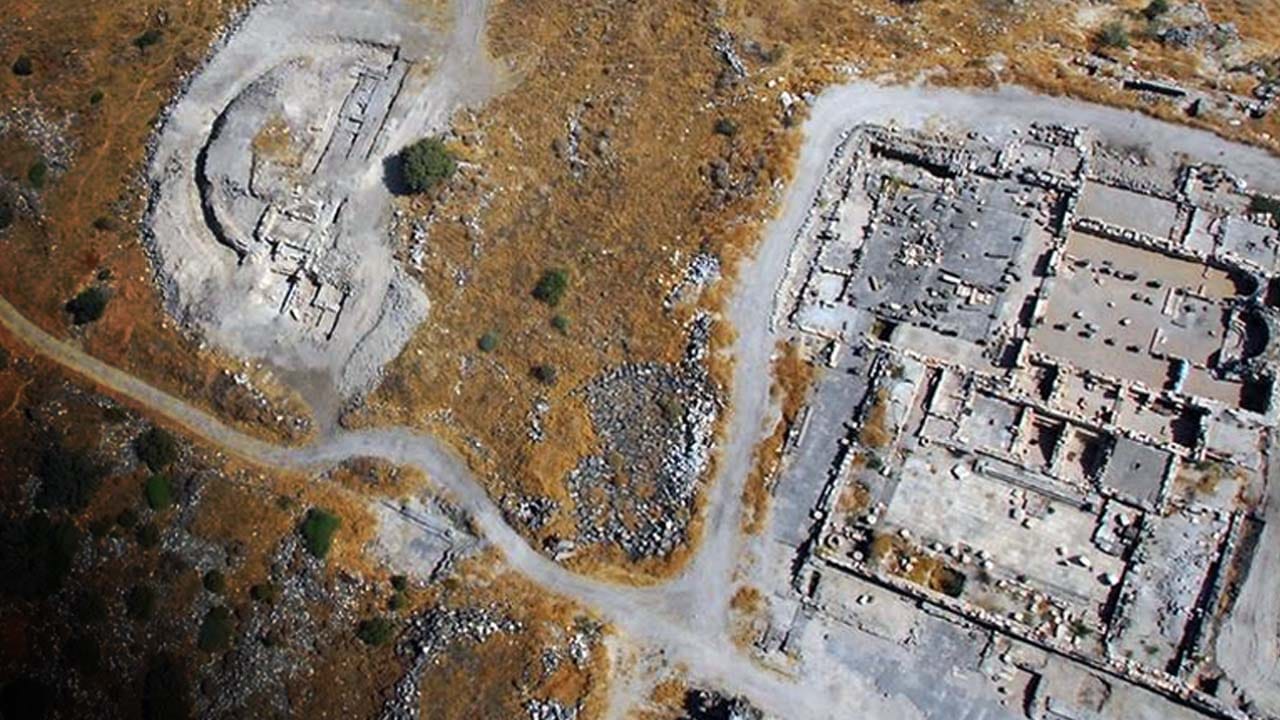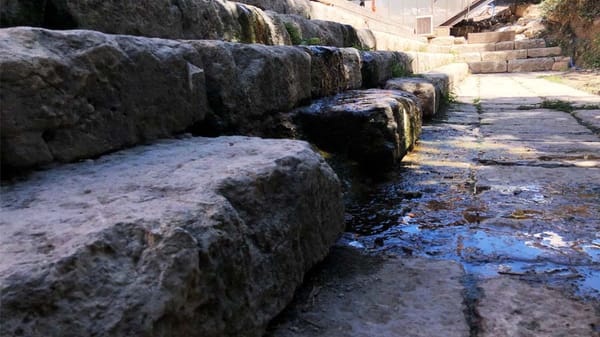This newly uncovered gateway and a mysterious mask may offer clues about the ancient Greek god. Researchers at the University of Haifa just uncovered a Roman gateway in Israel’s Sussita National Park near the Sea of Galilee. What’s so special about this discovery? It’s all about location. Last year, archaeologists found a 2,000-year-old bronze mask of Pan, a rustic Greek god, on the same site.
“Now that the whole gate has been exposed, we not only have better information for dating the mask, but also a clue to its function,” said Dr. Michael Eisenberg, the head of the expedition. “Are we looking at a gate that led to the sanctuary of the god Pan or one of the rustic gods?”
The researchers think the mask used to be attached to a wall or alter. The mask dates from the first century B.C. and the second century A.D.
“The mask, and now the gate in which it was embedded, are continuing to fire our imaginations. The worship of Pan sometimes included ceremonies involving drinking, sacrifices, and ecstatic rituals,” explained Eisenberg, a professor at Israel’s University of Haifa.
Even if you’ve never heard of Pan, you’d probably recognize him from the art you have seen. In ancient times, he was a goat-like god of fields, groves, wooded glens, and wilderness. He was famous for playing his musical pipes and his sexual prowess. Images of Pan are quite common in pagan culture and have carried over into the Western art tradition.










Member discussion